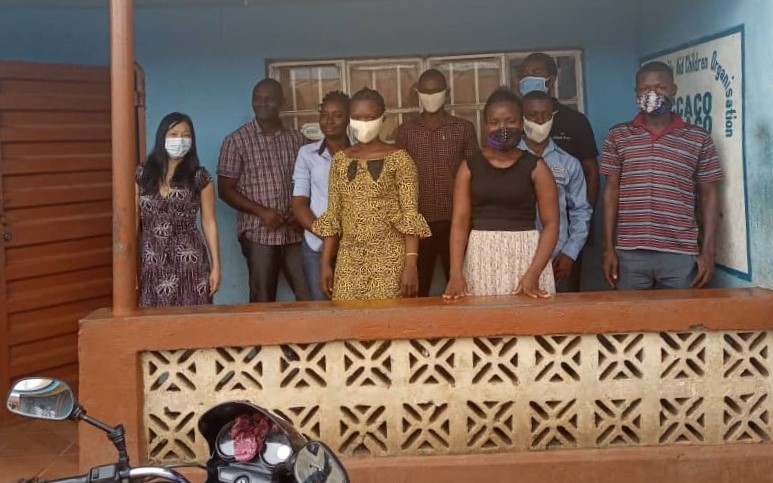Covid-19 is a new experience for most of us, but for Sierra Leone, it is a recurring nightmare. First, the small West African nation endured a long, vicious, devastating civil war, in which rebels amputated people’s hands as punishment. Then in 2014 came Ebola. Now, it is Covid-19.
It’s hard to get a clear picture of what’s happening in many African countries because there is little testing for Coronavirus. The rate of infection and mortality seems low, compared to Europe, India, the USA and Brazil. However, statistics need to be taken with a bucket of salt.
In Sierra Leone, the official figures reveal a relatively low number of cases – 2,000. But, as with the rest of Africa, the greatest casualty is the economy. Cross-border trade has ground to a halt, tourists are absent, and demand for the export of natural resources has shrunk.
Any visitor to Africa has seen people selling produce from their kitchen gardens at the side of the road. They have witnessed how millions of people scrape a living day-by-day, on construction sites or driving motorbike taxis or selling phone cards and bottles of water. The lockdown means people have lost livelihoods or have greatly reduced income.
Port Loko, Sierra Leone
Port Loko district, where we are working, was particularly badly affected during the Ebola epidemic of 2014-15. It’s hardly surprising that people there are especially concerned – indeed, fretful – about Covid-19. Our team of seven, including two local counsellors sees a growing number of people with extreme stress, as well as an increase in the severity of psychological trauma with existing sufferers. Misinformation about Covid-19 is creating fear; people are avoiding health facilities; and there is an increase in violence (especially sex and gender-based violence) and substance abuse.

We are helping people who would otherwise be without any mental health support, at a time when they need it most. The silver lining for Network for Africa is that these extreme circumstances have forced our local team to learn at an accelerated rate. Our mental health specialist has been training them with a crash course of skills, as well as supervising their work. She has also given training to the local district mental health nurse.
In aid-world jargon this is called sustainability. In practice, it means we will hopefully be able to leave well-trained professionals in place, ready to carry on, when we leave. To use business lingo, we are developing both personnel and infrastructure, hoping the return on investment will be a local health system that can function without outside support.
The Team’s Achievements
Here is a summary of some of our team’s achievements:
- We have delivered Covid-19 and mental health awareness sessions at school assemblies in nine secondary schools when they reopened so children could sit exams.
- We conduct Covid-19 awareness raising sessions alongside psychosocial support and mental health education. These have helped to build greater awareness and empathy, and reduce stigma towards people with mental illnesses and their caregivers – as well as addressing anxieties and misinformation surrounding the Covid-19 pandemic.
- We provide and distribute masks and portable hand washing facilities to people with mental illnesses and their caregivers who would otherwise have nothing.
- We support nine self-help groups, consisting of 168 people with mental illness and their caregivers. Meeting in a safe, socially-distanced way, they are developing village savings and loans associations (VSLAs), although the Covid-19 pandemic has reduced opportunities for people to earn and save money.
- We have conducted a census of people with epilepsy and psychosis who are currently unable to access medication, and we are getting medication for those who desperately need it.
- We are also supporting the Port Loko district mental health nurse to run vital monthly mental health clinics in three community health facilities.
- We continue to provide psychosocial counselling to people with mental illnesses and their caregivers and families, including 22 war survivor amputees and family members who live in one of Sierra Leone’s camps for amputees.
Please listen to some of the participants of the project in Port Loko, Sierra Leone, talk about what having access to mental health support means to them and their families and communities.
Thank you for supporting our work, and a special thank you to the friends of Network for Africa who stepped up a few months ago when we needed urgent help to adapt as the pandemic forced lockdown in Sierra Leone. We would still welcome donations because the scale of the need is enormous. Our local team has the courage of lions, and they deserve our support.
Support The Team in Port Loko